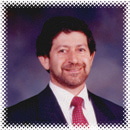

Rebuilding Afghanistan’s Libraries
A skilled engineer, successful entrepreneur and venture capitalist, Fred Seddiqui, BS’76 (T), MS’77 (T), is familiar with numbers, but his passion is no less stirred by words and books. That passion, rooted in his native land of Afghanistan and sparked by his family’s contributions to Afghan libraries, has led him to undertake the restoration of Afghanistan’s literary heritage.Born in Herat, Seddiqui’s ties to the country’s libraries are extensive. His father, Omar, was president of the Afghan Library System in Kabul and served as vice chair of the Afghan National Archives for 20 years. And, Seddiqui’s grandfather donated his own collection of artifacts, rare manuscripts and more than 2,000 books to the Herat Public Library.
But the younger Seddiqui’s interests were different. He immigrated to New Jersey while still in his teens to live with his aunt and uncle in Lodi. After earning his undergraduate and graduate degrees in engineering at Fairleigh Dickinson, Seddiqui moved to the San Francisco Bay area, which has the largest Afghan population in the United States.
When the Soviet Union invaded Afghanistan in 1979, Seddiqui’s father lost his job presiding over Kabul’s Central Library. Later, his parents fled the country, escaping, Seddiqui recalls, “with great difficulty.” The library collection was not so fortunate during 25 years of warfare, and many volumes were burned.
|
|---|
With the overthrow of the Taliban, Afghanistan today is being rebuilt, and Seddiqui and his family have formed the nonprofit Afghan Public Library Foundation to aid in the restoration of Afghanistan’s libraries. “I was fortunate to have the benefit of an education, and felt I had to help. As part of honoring my family heritage, the restoration is my commitment to the future of the people of Afghanistan.”
The group works to rebuild the public library infrastructure, train staff, build information technology and reach out to rural communities. The foundation received donations of computers from California Technology Care Center and is sending them to Afghanistan.
Seddiqui’s impressive career leaves no reason to doubt his prospects for success. The engineer finds his role as a venture capitalist and entrepreneur “enormously satisfying. Entrepreneurship is exhilarating, especially if it is a product or a service that makes a difference in human life.”
Seddiqui has certainly made a difference. In the 1990s, as the chief executive officer of Medical Computer Imaging and FIDUS Medical Technology, he led the development of a breakthrough technology that combines the use of a catheter and a microwave ablation method to cure coronary arrhythmia. Approved by the Food and Drug Administration (FDA), the technology spurred the creation of other companies.
|
|---|
As a venture capitalist, Seddiqui, now a principal of Silicon Valley Ventures Partners LLC, says, “I look for products or technology that improve human life. I meet with company founders, assess needs and develop processes that add value to the progress and success of the company. If we do the right things, the money will follow.” Seddiqui describes running a company as “managing an ordered chaos. And all the time you think ahead about cash flow, because no matter how good an engine you build, it will not run without the fuel.”
Seddiqui’s desire and talents have fueled his success story. After arriving in New Jersey, he chose to study at FDU because of its “ideal geographical location and its liberal arts courses, which allowed me to break out of the dry, engineering curriculum.” He adds, “FDU gave me other areas of my education that I could tap into and use when researching companies and dealing with people.”
Being a trained engineer taught him to look at “the complexity of issues and then simplify. It’s an extremely useful tool [to have], whether dealing with people, products or situations.” Seddiqui fondly recalls mechanical engineering professor Pasquale DePadova, who “had a way to make me pay attention. He was an excellent teacher.”
Seddiqui later received his MBA from Golden Gate University, San Francisco, and attended the executive program at the Graduate School of Business, Stanford University.
At home in California, he enjoys bicycling, running marathons, gardening and skiing. Married to a New Jersey native, he is the proud father of two boys. He says that his sons “are both very competitive and enjoy challenging themselves.” Those traits obviously run in the family.
— M.D.
FDU Magazine Home | Table of Contents | FDU Home | Alumni Home | Comments
©Copyright 2004 Fairleigh Dickinson University. All rights reserved.
For a print copy of FDU Magazine, featuring this and other stories, contact Rebecca Maxon, editor,
at 201-692-7024 or maxon@fdu.edu.